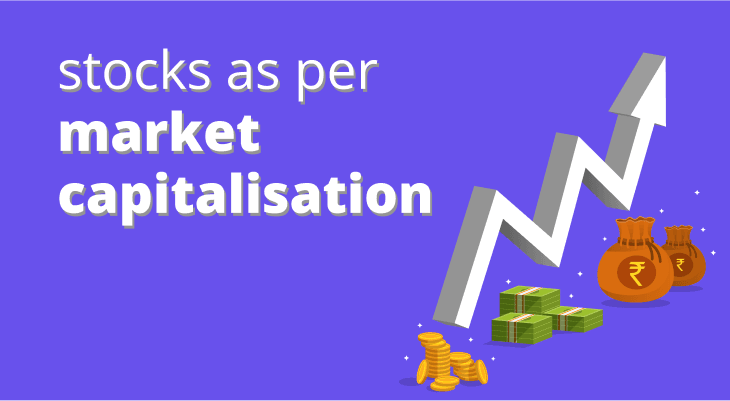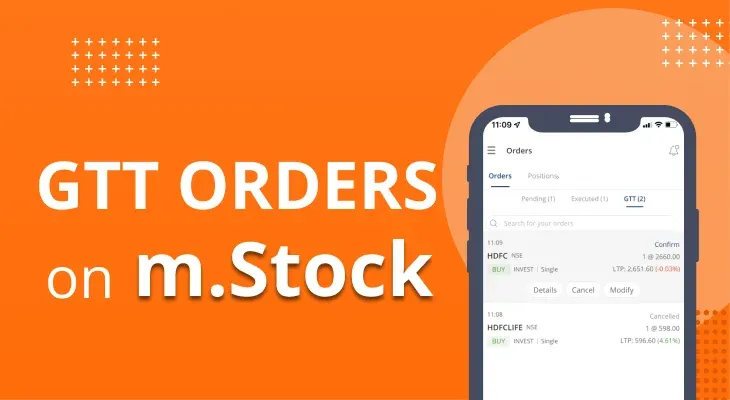
What is a Gold ETF Fund? Meaning, Features & Taxation
Investing in physical gold has been a mainstay in the financial world in India, with a range of society’s strata putting their faith in the metal for its benefits of beauty and liquidity. However, if you are wary about investing in physical gold due to its many challenges today, you may consider a gold ETF or gold exchange-traded fund. Gold ETFs are passive funds and they can be considered if you want to invest in a potentially highly profitable metal - gold - without the stress of owning physical gold. Just think of how you would invest in stocks in a mutual fund, and you will understand how you can invest in a gold ETF.
What is a gold ETF?
Gold ETFs represent gold exchange-traded funds. These are commodity-focused mutual funds that allocate their assets to gold. When you invest in a gold exchange-traded fund, you invest in individual units of gold, like you would individual stocks in an equity mutual fund. Gold ETFs are approached in the same way and can be traded on exchanges.
So, to answer the question “What are gold ETFs?” further, these funds have the objective of tracking the price of physical gold in the market. The fund allocates its assets to gold bullion of a purity value of 99.5%, reflecting pure gold. Gold ETFs permit investors to potentially make returns from the change in the prices of gold in the domestic market. In the same way that other ETFs function, including a group of securities, in gold ETFs, investors can invest in units of gold, with a single unit being equivalent to 1 gram of gold. These funds are typically traded on exchanges where shifts in prices of gold ETFs potentially occur.
How does a gold ETF work?
A gold exchange-traded fund is like a mutual fund, but it holds the commodity of gold. Generally, gold ETFs hold, in their funds, assets related to gold such as gold bullion or gold futures contracts. In any gold ETF, the price of the exchange-traded fund coincides directly with the price of physical gold in the market. In India, gold prices in the Indian market apply to gold ETFs. For example, in case the price of gold in the Indian market increases by 2%, the value of the exchange-traded fund will likely rise by approximately the same degree. In the event, the price of gold goes down, the ETF gold value will also fall. As is the case with stocks and the stock exchange, investors can purchase and sell shares they hold in a gold exchange-traded fund on the share exchange. This indicates that gold ETFs have the characteristic of liquidity in investment.
Who should invest in gold ETFs?
If you have understood the answer to the question, “What are gold ETFs?”, then you may want to find out if you are a good fit to invest in these exchange-traded funds. Needless to say, gold ETFs may be considered by investors seeking an investment avenue that explores investment in premium gold and avoids the hassle of physical gold storage or safety concerns. Investors who seek worry-free portfolio diversification can take advantage of gold ETF instruments to leverage the eternal demand for this ever-increasing-in-value commodity.
Furthermore, gold ETF investment may be considered by investors who find low investment costs appealing as gold ETFs present decreased brokerage fees. When compared to other funds, these funds, passively managed, tend to work out cost-efficiently as they don’t involve fund managers. Here, the price of gold is tracked automatically and aligned with gold value in real-time. Additionally, as gold ETFs are listed on stock exchanges, they are accessible and visible to investors. This makes the analysis of gold share prices convenient, and investment streamlined and transparent.
Benefits of Investing in Gold ETFs
While making investments, whether you invest in gold ETFs or direct equity, you must think of various variables linked to your investments. For example, gold ETF taxation, features, benefits, and more aspects must be considered. However, to make an investment decision about a particular investment channel like gold ETFs, the benefits you may receive count for a lot. Here are some key benefits of gold ETF investment:
Gold ETFs prevent investors from the stress associated with storage of physical gold, and other concerns like loss or theft.
Gold ETFs lack associated costs like entry and exit loads, and hence, they tend to maximise your returns.
Gold ETFs provide a transparent way to invest in gold where the purity is assured and the value is determined officially with no room for subjectivity and other concerns like making charges related to physical gold bought at local outlets.
The process and mechanism for trading gold ETFs is simple relative to buying and selling physical gold. Investors get to know real-time gold prices and can trade smoothly online, taking advantage of price movements to make profits.
One of the main factors of appeal in gold ETFs is that they are easy on the tax front. There is only a capital gains tax applicable to these investments.
How to Invest in Gold ETFs
Investing in gold ETFs is uncomplicated, even if investors are just starting the investment process. To begin your gold ETF investment journey, like stock investment, you require a Demat account. Opening a Demat account and the process of investing in ETFs is defined in the steps below:
Select a Brokerage/DP and Open a Demat Account
The first step to investing in any assets listed on exchanges is to open a Demat account, either with a reliable brokerage or any other DP such as your bank. You can sign in to your DP’s portal and open a Demat account online, or physically at your authorised DP’s premises.
Do Research and Opt for a Gold ETF
After you have opened your Demat account successfully, you can do some research on gold ETFs available and opt for one that suits your investment needs. When you visit an online portal to find gold ETFs, you will likely have to visit the tab “Mutual Funds” to view and study a list of funds.
Select an ETF and Investment Scheme
Choose a gold ETF as per your requirements and financial goals, and you will have to click on the particular fund and go through a menu-driven process to apply. You can also select the way you wish to invest, either via a SIP (systematic investment plan) or a lump sum investment. Either way, your portal will guide you on the processes which are quite self-explanatory.
Make Payments
In case you are investing online, you can make payment online, depending on the units of gold ETFs you opt to invest in. If you physically invest in these, you can also make online payments or hand over a cheque to your DP. Once your investment is confirmed, you will get messages to this effect by email and on your mobile phone. Additionally, you will be able to access your gold ETF account with a user ID and your distinct password.
Conclusion
Indians seek gold as a primary investment instrument, and most gold invested in India takes the form of physical gold. While this is a traditionally acceptable and much-in-demand way of investing in sparkling metal, it is not the only way. Investors may want safer ways to invest in gold, as physical gold investment comes with its challenges of possible theft and loss, not to mention storage. Gold ETFs give you the option of investing in gold exchange-traded funds that invest in gold bullion, tracking the value of physical gold in India’s market. Investments are identical to investing in the physical form of gold, yet you remain safeguarded as they are digitally held in a fund, just like a mutual fund investment. Gold ETFs come with many benefits for investors and add to the plus of portfolio diversification.
FAQ
What are gold ETFs?
Gold ETFs stand for gold exchange-traded funds. They are an investment instrument that tracks the prices of domestic physical gold. The fund invests its capital in gold bullion with gold at a 99.5% purity level. A passively managed fund, an ETF lets investors invest in gold without the physical bother of investing.
Is a gold ETF a good investment?
Investing in gold ETFs may be considered by investors who want exposure to gold investment without the worry of investing in the physical metal (gold). Gold ETFs offer you gold investment with liquidity, flexibility, and potentially lucrative returns, making these instruments a potentially significant avenue for portfolio diversification.
Is investing in a gold ETF liable for taxation?
Like many investments that bring capital appreciation, gold ETF investment is subject to taxation, in terms of capital gains tax being applied. If the ETF is held by an investor for more than a year, a capital gains tax of 15% is applicable, and a 4% additional cess applies too. For holdings of ETFs that go above a year, a tax of 10% is applicable.


